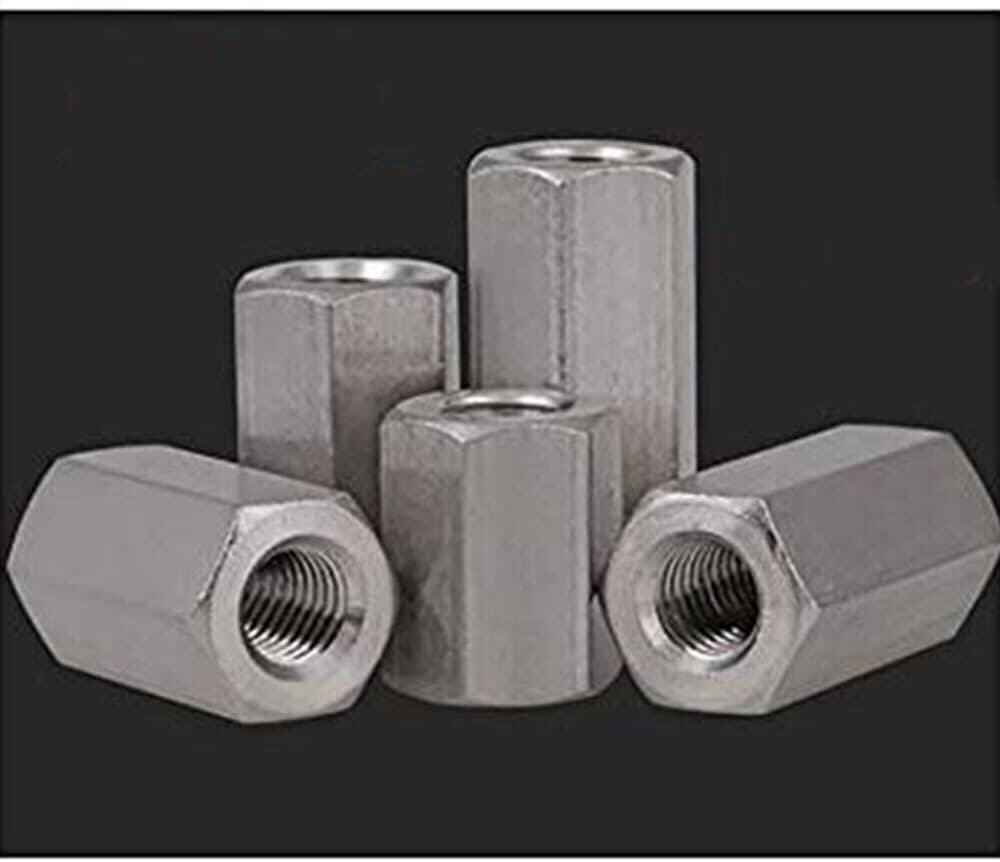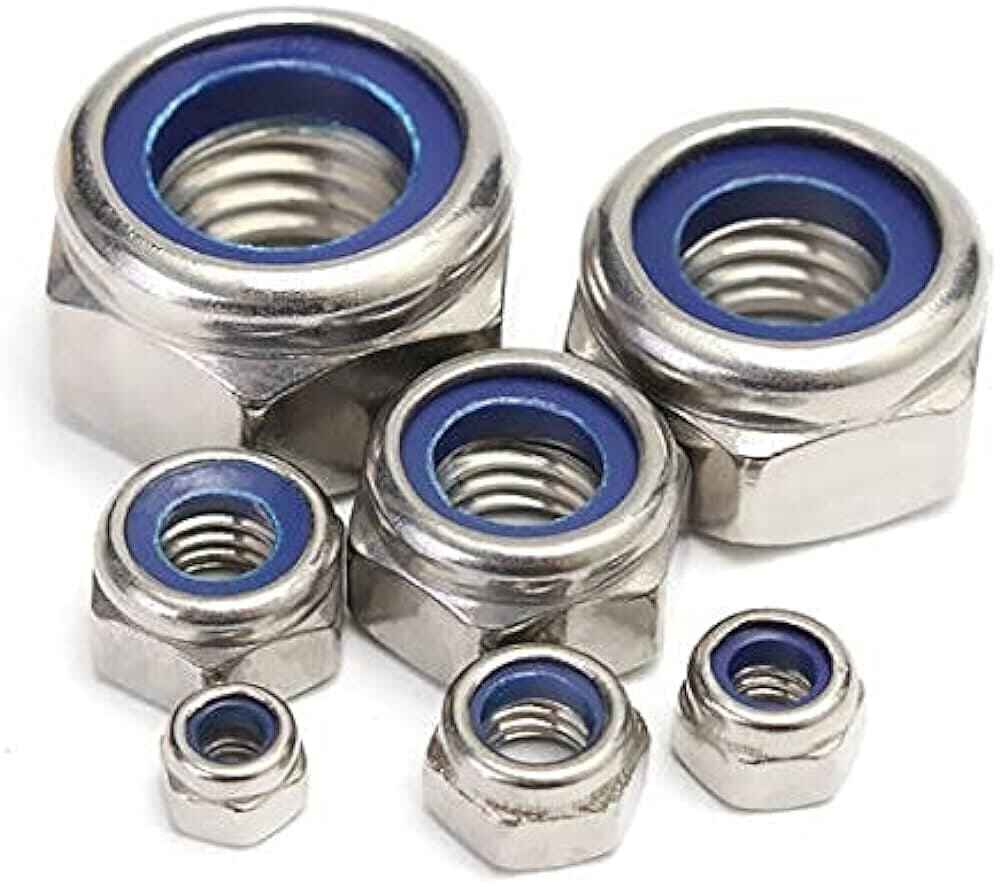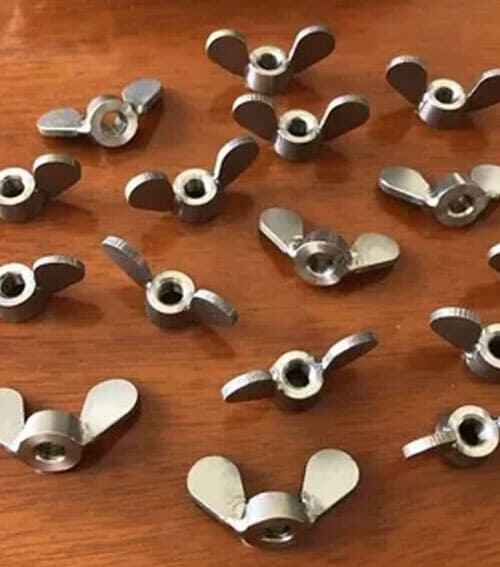Fasteners – Bolts & Nuts
Fasteners play a crucial role in various industries, allowing us to securely join mechanical components. Let’s delve into the world of fasteners.
Definition of Fasteners:
A fastener is a broad category of mechanical tools or elements used to hold two or more objects together as a rigid attachment. These components allow for the separation or dismantling of pieces without causing damage, although they can also serve as permanent joints.
Types of Fasteners
Here are some common types of mechanical fasteners:
Nuts and Bolts:
These work in tandem, with the bolt passing through bolt holes between components, and the nut fastened on the other end. Various types of nuts include:


Hex Nuts
1.Reduced Splitting:
The most common variety, with a hexagonal shape and internal threads. They can be tightened or loosened from any angle using a wrench.
Coupling Nuts:
Also hex-shaped, these hollow-threaded fasteners join two male threads together (often used for plumbing pipes).
Lock Nuts:
Designed to prevent loosening due to vibrations, they find applications in automotive and washing machines.
Square Nuts:
Featuring four sides, square nuts offer greater surface area and strength, commonly used in furniture and metal channel applications.
Flange Nuts:
These have a serrated flange on one end, serving a similar function as a washer without added movement
Wing Nuts
Easily tightened or loosened by hand, ideal for applications requiring frequent adjustments.
Washers:
These flat, thin discs distribute load and prevent damage between fasteners and surfaces.
Screws:
Used for threaded fastening, screws come in various types such as wood screws, machine screws, and self-tapping screws.
Nails:
Commonly used for wooden structures and carpentry.
Anchors:
Used to secure objects to concrete, masonry, or other materials.
Rivets:
Permanent fasteners often used in aircraft and structural applications.
Pins:
Simple cylindrical fasteners with various uses.
Retaining Rings:
Circular clips that hold components in place on shafts or inside housings.
Inserts:
Threaded or non-threaded components inserted into materials like plastic or wood to create a threaded hole.
These fasteners find applications in industries such as automobiles, construction, aircraft, agriculture, machinery, and infrastructure.


Materials and Codes:
Fasteners can be made from materials like steel, stainless steel, brass, and more. Relevant codes and standards ensure their quality and performance.